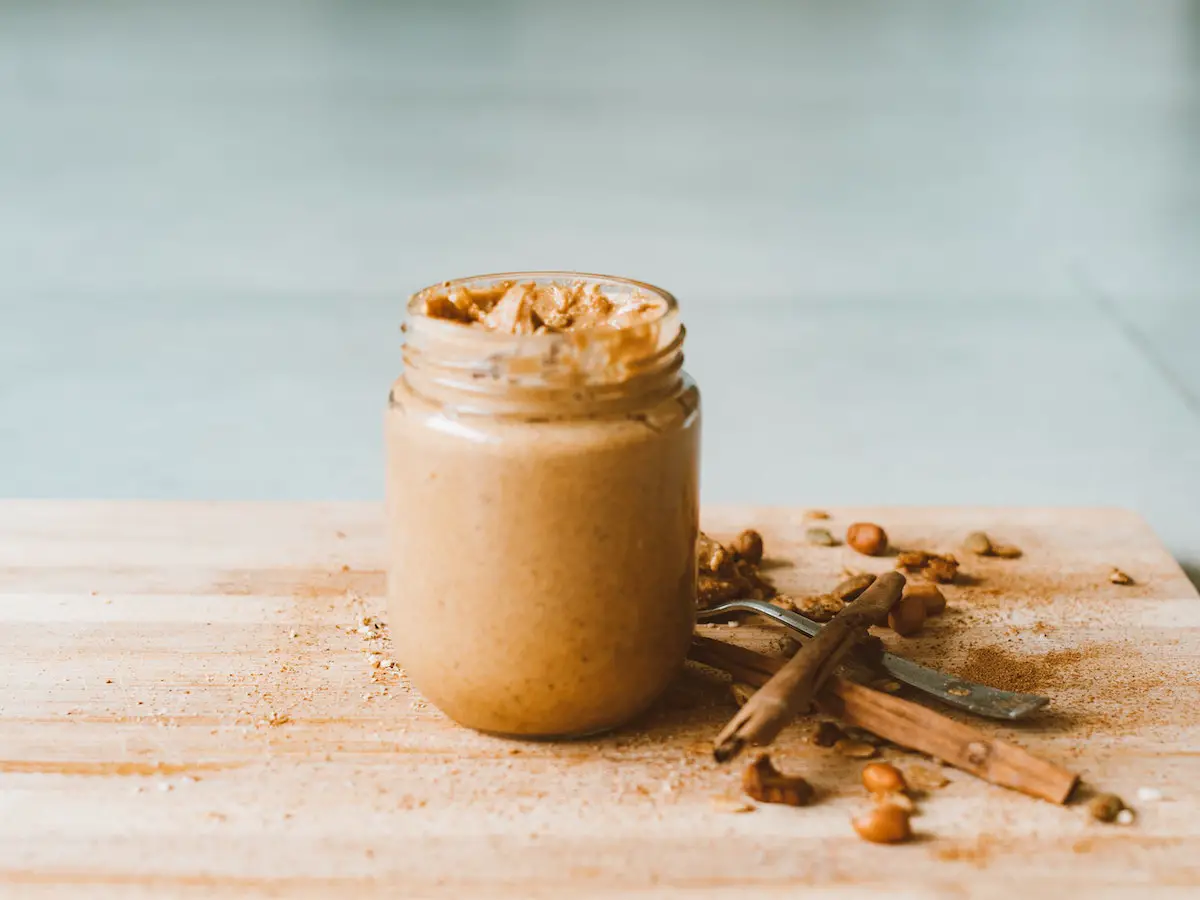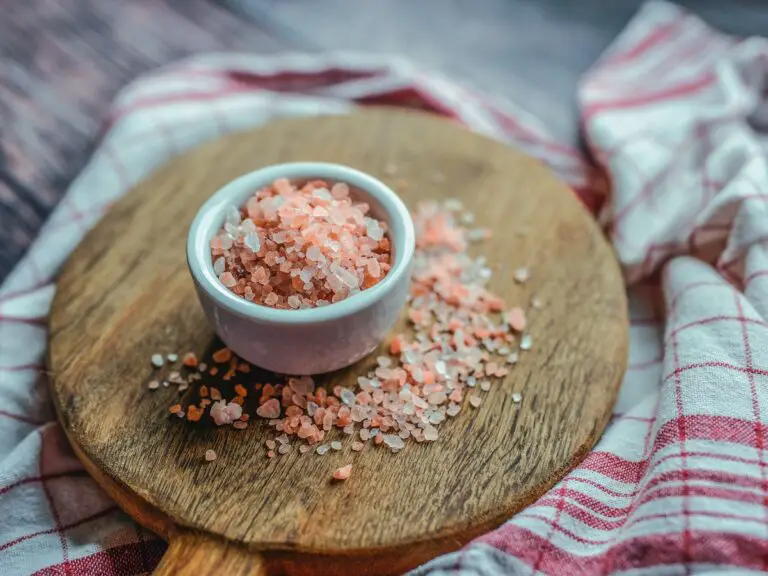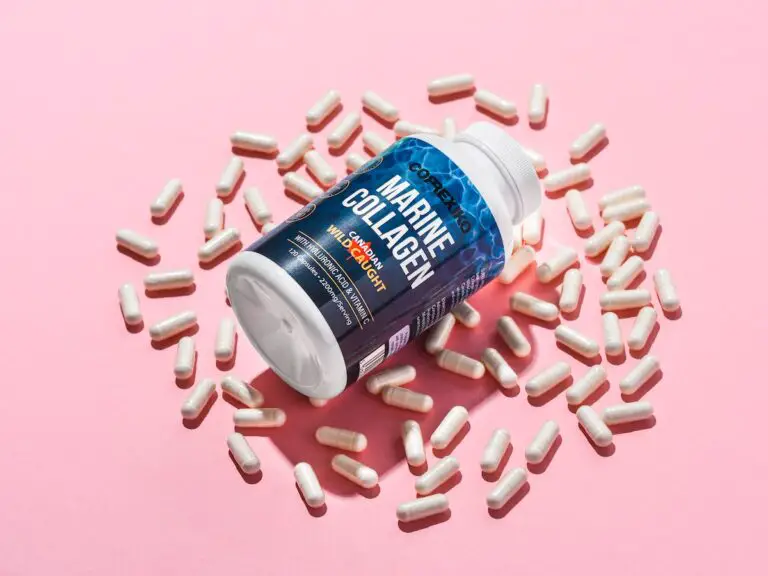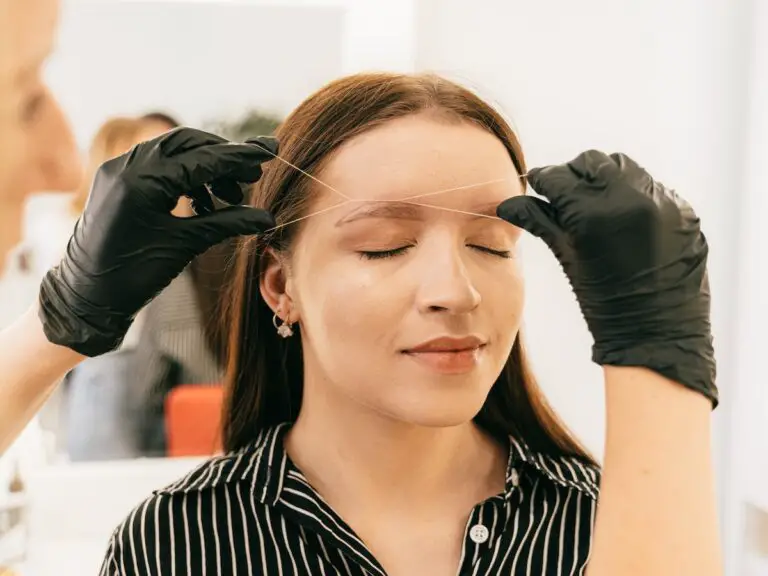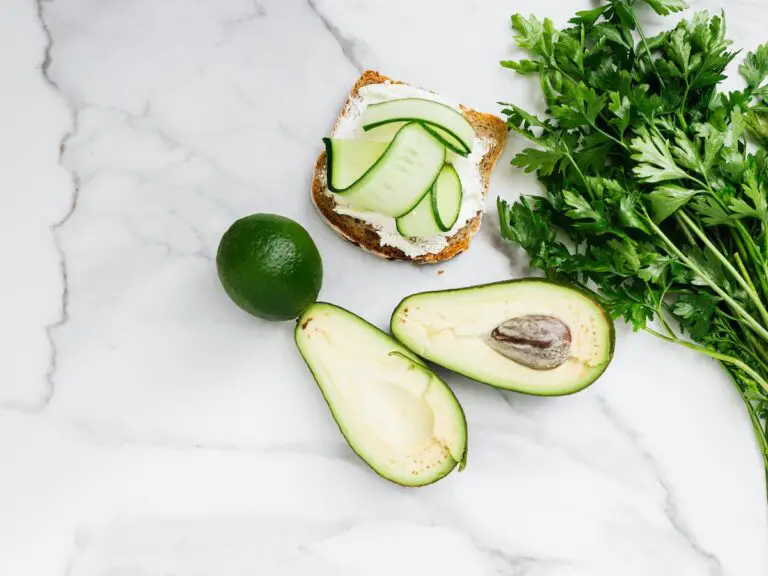Does Almond Butter Cause Acne? (Research Revealed)
You like almond butter, but you’re afraid it might cause your skin to break out. Well, you’re not alone. People have been talking about the connection between food and acne for years, and almond butter has become a topic of interest.
This article goes into length about almond butter and how it might affect your skin. Is there scientific evidence that almond butter causes acne? Or is it just a fairy tale? Join us as we try to figure out who the real bad guy is and separate fact from fiction. This article will tell you everything you need to know about how food changes your skin tone, whether you love almond butter or are curious.
Get ready to learn the truth about almond butter and acne, which will help you make better decisions for your face.
Table of Contents
Understanding the Factors that Cause Acne
Acne is a problem with the skin that affects a lot of people all over the world. Acne, blackheads, and whiteheads form when oil and dead skin cells are trapped in the hair follicles. Acne is mostly caused by changes in hormones and your genes, but what you eat and how you live can also worsen it. If you want to know if almond butter can cause acne breakouts, you need to know what makes acne happen.
One of the primary causes of acne is an excess of sebum, an oily material that helps keep the skin moist. The body’s excessive sebum can clog pores and cause acne.
Hormonal changes, especially during puberty, can make the body make more sebum, which makes it more likely for kids to get acne. Also, bacteria like Propionibacterium acnes can worsen acne by making the pores grow and get infected.
Scientists know that hormones and germs can cause acne, but they still don’t know if food has anything to do with it. Some studies show that foods with a lot of sugar, dairy, and fatty fats may worsen acne. But the link between what you eat and acne is complex and different for everyone. Now, let’s find out if the popular food almond butter can cause acne.
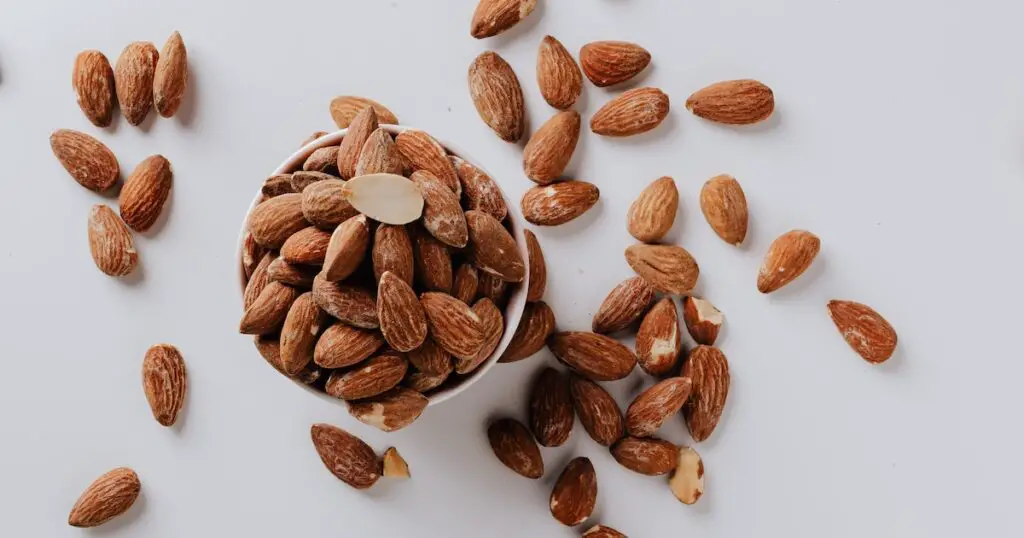
The Nutritional Profile of Almond Butter
Before we rule out almond butter as a possible cause of acne, let’s look more closely at what it contains. Almond butter is full of healthy fats, like monounsaturated and polyunsaturated fats. These fats are important for keeping your skin and body in good shape. They help improve the skin’s natural barrier, which keeps it moist and protects it from environmental irritants.
Almond butter is also a good source of protein, which helps fix and grow new tissues by giving them the building blocks they need. Protein is important for keeping skin cells healthy and helping scars from acne to heal. Almond butter also has fiber, which helps digestion and keeps blood sugar levels stable. Having stable blood sugar is important for keeping hormones in order, which can help clear acne symptoms.
Vitamin E, known for its antioxidant qualities, is one of the vitamins and minerals in almond butter. Antioxidants protect the face from oxidative stress, a process that can lead to acne. Almond butter also has magnesium, which can help reduce pain and make you feel more relaxed. Even though these nutrients are good for your skin, there is no proof that they cause or worsen acne.
The Potential Benefits of Almond Butter for Skin
Even though nut butter might not cause acne, it might be good for your skin in other ways. Almond butter is high in healthy fats, protein, and vitamins, which can help your skin glow.
Almond butter’s monounsaturated and polyunsaturated fats feed the skin from the inside, making it more elastic and less dry. These fats also help your body absorb fat-soluble vitamins like vitamin E, which is important for keeping your skin healthy.
Almond butter has the amino acids needed to make collagen because it has protein. Collagen is a protein that helps keep the skin’s structure and keep it looking firm and young. By eating almond butter, you can help your body make collagen and possibly improve the texture and look of your face.
The high fiber level of almond butter also helps keep a healthy gut microbiome, which is important for skin health. A balanced gut microbiome can help lower inflammation and support a healthy immune system, which is important for preventing acne breakouts. Adding almond butter to your diet can help your face heal naturally and take a more well-rounded approach to your skincare.
Debunking the Myth: Does Almond Butter Cause Acne?
Even though there are more and more worries that almond butter might cause acne, no scientific evidence supports this claim. Almond butter, made from ground almonds, is a healthy food with many benefits. It has a lot of good fats, protein, fiber, vitamins, and minerals that your body needs. But none of the nutrients in almond butter have been shown to directly cause acne.
Acne is caused by more than one thing, so blaming a single food item for breakouts oversimplifies the situation. Some people may get acne flare-ups after eating almond butter, but this is probably not because of the almond butter itself.
For example, if too much almond butter is eaten or it is eaten with other high-glycemic foods, the total diet may cause acne. So, it’s important to look at the big picture and a person’s diet as a whole instead of picking out specific things.
Other Factors to Consider while Managing Acne
Even though almond butter might not cause acne, there are other things to consider if you have acne-prone skin. Eating a balanced diet with a range of foods high in nutrients is important. Choose whole grains, fruits, veggies, and lean proteins to give your body the vitamins and minerals it needs for healthy skin. Also, drink plenty of water to flush out toxins and moisten your face from the inside out.
Acne can also be controlled in a big way by taking care of your skin. Use mild soaps, and don’t scrub too hard because this can irritate the skin and worsen acne. Utilize salicylic acid or benzoyl peroxide products to help unclog pores and diminish discoloration.
But remember that everyone’s skin is different, so what works for one person might not work for another. If you have acne that won’t go away, you might want to talk to a dermatologist to get personalized advice and treatment choices.
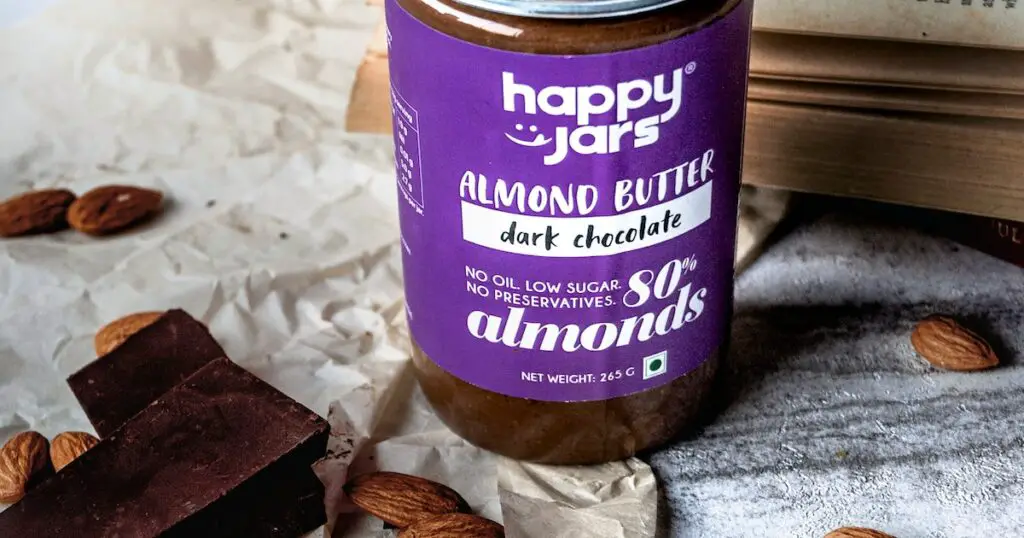
Almond Butter Skincare Hacks
If you’re an almond butter enthusiast looking to incorporate it into your skincare routine, here are a few tips to consider:
- Moderation is key: While almond butter offers numerous health benefits, it’s important to consume it in moderation. Follow the prescribed serving size to avoid consuming excessive calories. Remember, a balanced diet is crucial for overall skin health.
- Pair it with low-glycemic foods: If you’re concerned about the impact of almond butter on your skin, pair it with low-glycemic foods like whole grains, vegetables, and lean proteins. This can help minimize any potential negative effects on blood sugar levels and overall skin health.
- Choose natural almond butter: When purchasing almond butter, opt for natural varieties without added sugars, oils, or preservatives. These additives can potentially worsen acne symptoms. Read the ingredient list carefully and choose brands that prioritize quality and simplicity.
- Listen to your body: Pay attention to how your skin reacts after consuming almond butter. Consider reducing or eliminating almond butter from your diet if you notice any adverse effects, such as increased breakouts or skin irritation. Everyone is unique, and what works for others may not work for you.
By following these tips, you can enjoy the potential benefits of almond butter while minimizing any potential negative effects on your skin.
Alternative Nut Butter for Acne-Prone Skin
If you’re worried about almond butter will cause acne and want to try something else, there are several nut butter that can help people who get acne. Here are some other options to think about:
- Cashew butter: It has a lot of polyunsaturated fats, which are good for your skin. It also gives you important minerals like zinc, which helps control how much sebum your skin makes and reduces redness.
- Walnut butter: Walnut butter is a great way to get omega-3 fatty acids, which are good for reducing inflammation. These fats can help calm inflammation caused by acne and improve the skin’s general health.
- Macadamia nut butter: It is full of oleic acid, a natural fat that helps keep the skin hydrated and flexible. It also has antioxidants like vitamin E, which can protect the face from oxidative stress.
Remember that adding these options to your diet should be part of a well-rounded approach to skincare. Pay attention to your general lifestyle choices, such as a balanced diet, the right amount of water, and a regular skincare routine.
Seeking Professional Advice for Acne Management
If you’re struggling with persistent acne or have concerns about the impact of almond butter on your skin, it is always advisable to seek professional advice. Acne is only one of the many skin disorders dermatologists are trained to identify and treat. They can make unique recommendations based on your specific needs and assist you in developing a skincare routine that is appropriate for your skin type.
Additionally, a dermatologist can help identify any underlying factors contributing to your acne, such as hormonal imbalances or allergies. By addressing these root causes, you can develop a more targeted and effective approach to managing your acne.
Remember, everyone’s skin is unique, and what works for one person may not work for another. By consulting a professional, you can receive tailored advice and treatment options specifically designed to address your concerns.
Conclusion
We found that no scientific evidence supports the claim that almond butter causes acne. While almond butter is a nutritious food with potential benefits for skin health, it is important to consider other factors contributing to acne development. Maintaining a balanced diet, following a proper skincare routine, and seeking professional advice are essential steps in managing acne-prone skin.
If you enjoy almond butter and its potential benefits, there’s no need to eliminate it from your diet. Remember to consume it in moderation and pair it with other nutrient-rich foods. Listen to your body and pay attention to how your skin reacts, as everyone’s skin is unique.
Ultimately, making informed choices for a healthy complexion involves a holistic approach that considers various factors, including diet, skincare routine, lifestyle choices, and professional advice. By empowering yourself with knowledge and taking proactive steps, you can support your skin’s health and achieve a vibrant, acne-free complexion.
FAQs
There is no direct evidence to suggest that consuming almond nuts or almond butter causes acne. Almonds are generally considered a healthy food and can be part of a balanced diet. However, individual reactions may vary, and it’s important to listen to your body and make dietary adjustments if you notice any adverse effects on your skin.
There is no clear consensus on whether almond butter is better than peanut butter for acne. Both can be part of a healthy diet, as they contain beneficial nutrients. However, individual reactions may vary, and some people may find that one type of nut butter suits their skin better than the other. It’s important to consider personal preferences and monitor how your skin responds to different kinds of nut butter to determine what works best for you.
Individuals with known allergies to almonds should avoid consuming almond butter. Additionally, those with specific dietary restrictions or medical conditions that require them to limit fat intake or closely monitor their calorie intake should consult with a healthcare professional before including almond butter in their diet.
Almonds are generally considered safe for acne-prone skin and may even offer some potential benefits due to their vitamin E and anti-inflammatory properties. However, individual reactions may vary, and some people may find that consuming almonds triggers acne breakouts. It’s important to listen to your body and monitor how your skin responds to almonds or any specific food, making adjustments to your diet as needed.
Vitamin E, an antioxidant, in almond butter may improve the skin. Vitamin E prevents free radical damage and supports healthy skin. Almond butter’s moisturizing qualities also improve skin health and attractiveness. Before applying almond butter generally, test it on a tiny area of skin.
Disclaimer: This article is for educational purposes only, and does not substitute any medical advice. Always consult a qualified healthcare professional for personalized advice before trying new treatments or medications.

General Physician
Senior Medical Writer
